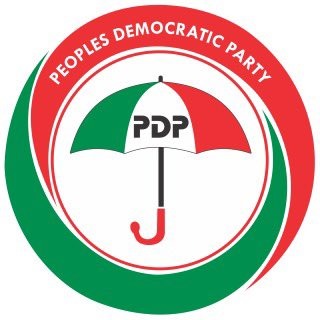The Peoples Democratic Party (PDP), a prominent political force in Nigeria, finds itself embroiled in a deepening internal crisis, threatening its unity and stability. This conflict, stemming from the aftermath of the 2023 presidential election, has escalated to the point where the party’s National Disciplinary Committee (NDC), led by former Minister of Foreign Affairs, Tom Ikimi, has been compelled to intervene. The NDC has issued summonses to key figures within the party, including former Benue State Governor Samuel Ortom and Senator Samuel Anyanwu, among others, demanding their appearance before the committee to address allegations of misconduct. This action underscores the seriousness of the internal strife plaguing the PDP and the urgent need for resolution.
The roots of the current crisis can be traced back to the 2023 presidential election, where internal divisions and accusations of sabotage undermined the party’s performance. In the months following the election, these simmering tensions erupted into open conflict, with various factions within the PDP engaging in a power struggle. This internal strife has manifested in several ways, including disputes over key party positions and accusations of anti-party activities. The most prominent example is the contested position of National Secretary, with both Sunday Ude-Okoye and Senator Samuel Anyanwu claiming the role. Despite endorsements for Ude-Okoye from influential bodies like the Board of Trustees and the Governors Forum, the dispute remains unresolved, further fueling the crisis.
The PDP National Working Committee, recognizing the severity of the situation, established the National Disciplinary Committee on August 21, 2024, tasking it with investigating complaints, hearing testimonies, and recommending appropriate actions to the National Executive Committee. This committee serves as a crucial mechanism for addressing internal disputes and enforcing party discipline. However, the persistence and escalation of the crisis, even after the committee’s formation, highlights the deep-seated nature of the divisions within the PDP. The committee’s decision to summon prominent figures like Ortom and Anyanwu signals a decisive step towards addressing these issues head-on.
The NDC, under Ikimi’s leadership, has received and reviewed five petitions relating to the ongoing internal conflicts. Among these petitions, three were initially directed against key members of the National Working Committee. However, the committee chose to defer action on these specific petitions to avoid jeopardizing ongoing reconciliation efforts being spearheaded by the Governors’ Forum and the Board of Trustees. This cautious approach demonstrates the NDC’s awareness of the delicate political landscape and its desire to prioritize party unity. By focusing first on the petitions against Ortom and Anyanwu, the committee aims to address immediate concerns while allowing space for broader reconciliation efforts to progress.
The remaining two petitions, one against former Governor Ortom and ten others, and the other against Senator Anyanwu, have become the immediate focus of the NDC’s attention. The committee has scheduled a hearing for February 12, 2025, at the Legacy House in Abuja, where both petitioners and the accused individuals, along with their respective witnesses, will be given the opportunity to present their cases. This formal process underscores the NDC’s commitment to due process and fair treatment, ensuring that all parties involved have a chance to be heard before any decisions are made. The outcome of this hearing could have significant implications for the individuals involved and the broader stability of the PDP.
Tom Ikimi, in his statement, emphasized the NDC’s dedication to upholding party discipline and restoring the PDP’s integrity. He reiterated the committee’s role as a constitutionally mandated body, accessible to all members with legitimate grievances. This statement serves as a call for unity and adherence to party rules, urging members to utilize the established channels for resolving disputes rather than resorting to public disagreements and factionalism. The NDC’s actions and pronouncements reflect a concerted effort to address the root causes of the internal crisis and pave the way for a more unified and effective PDP. The success of these efforts will ultimately determine the party’s ability to regain its footing and remain a competitive force in Nigerian politics.














